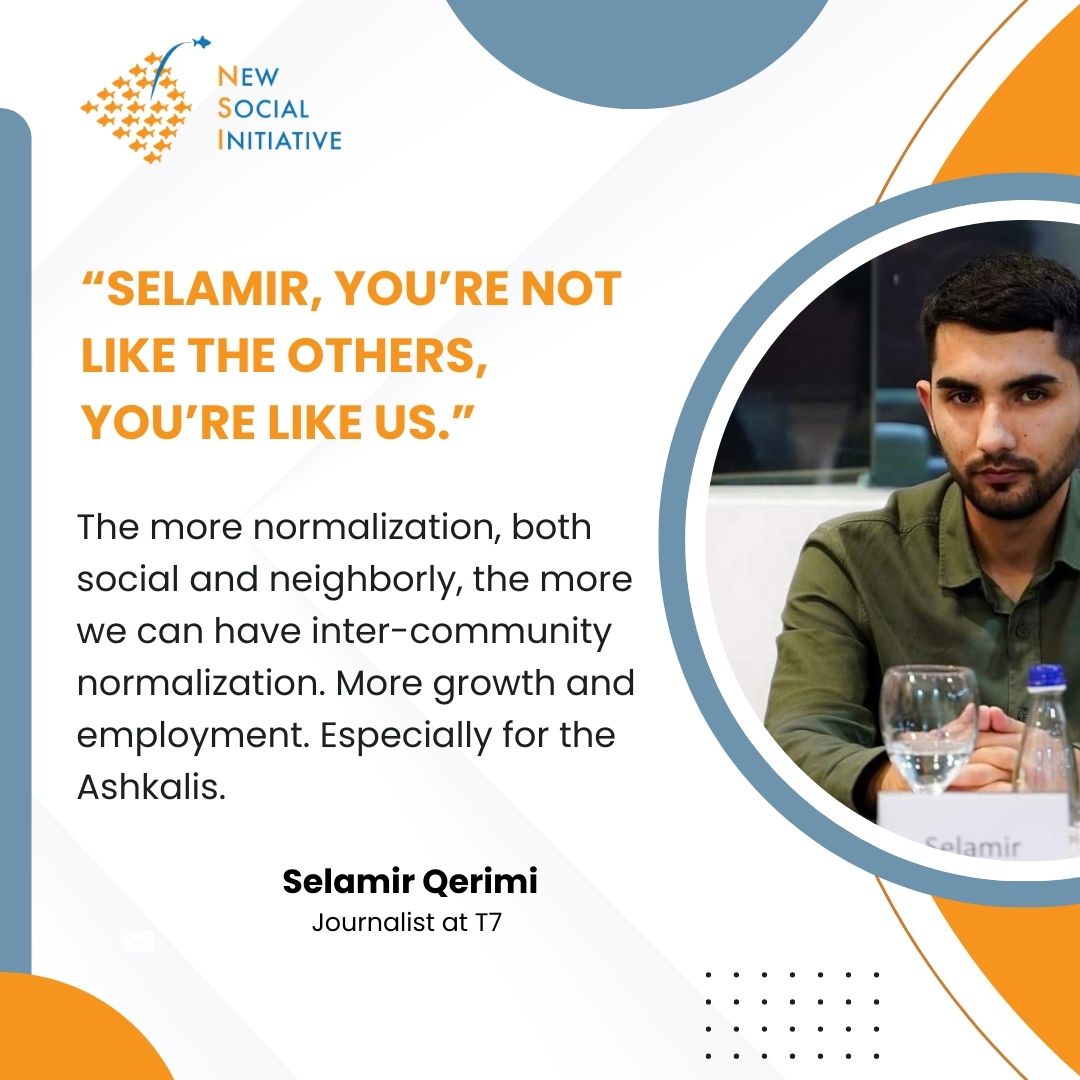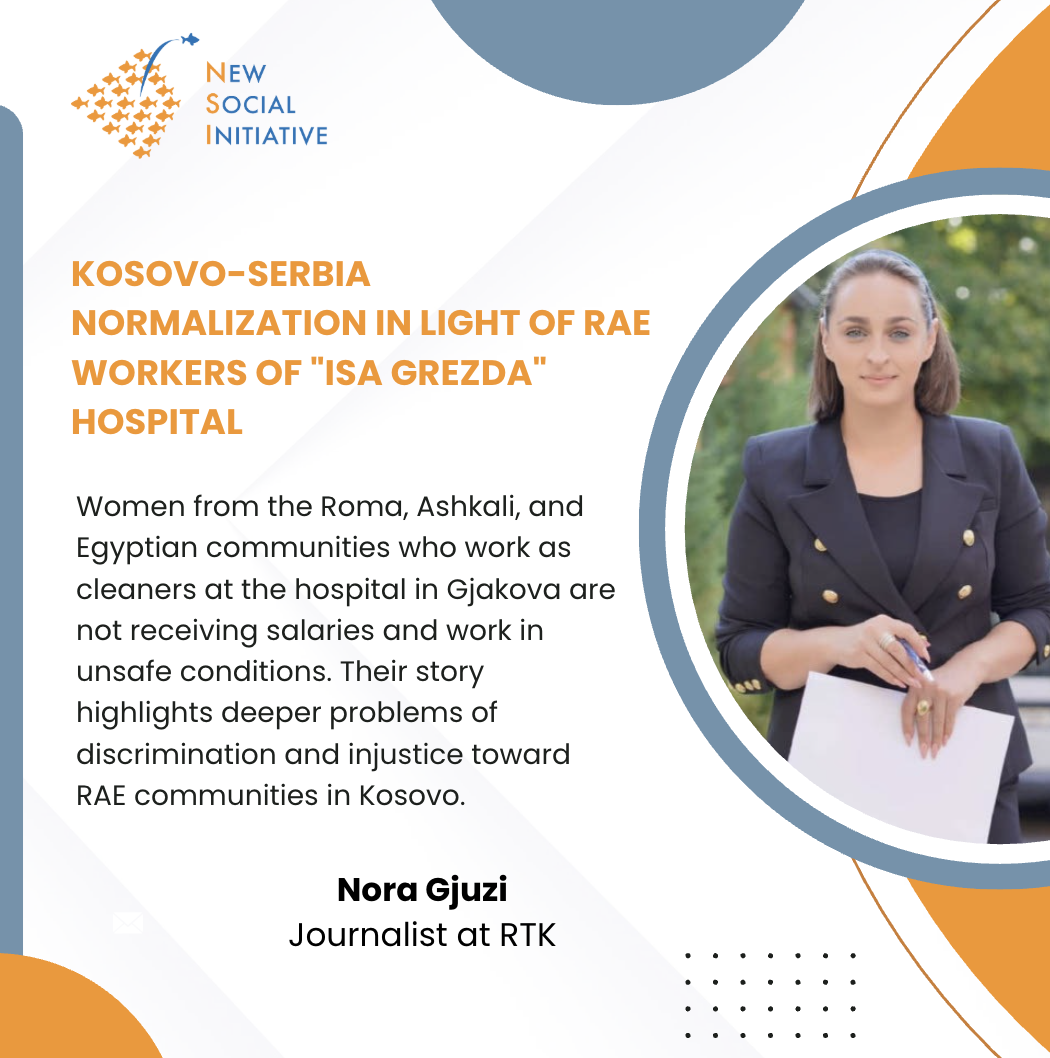Balkan countries are polarized around the idea of OPEN BALKAN. On the one pole are countries like Kosovo, Montenegro, and Bosnia and Herzegovina, which are hesitant towards and even oppose the idea, while on the other pole are countries like Serbia, Albania, and Northern Macedonia who are pushing this initiative forward as the only way to boost co-operation between Balkan countries. The parties are so polarized that a political representative from the pro-initiative camp described it as a war or peace issue – “Peace cannot be gained by means of war”, he said. But is this initiative bringing unity or division in the Balkans? And is there an alternative between the two sides? Do we have to be critical of the position of the other side? Why should we be against it anyway?
Kosovo’s international obligations
Kosovo committed to becoming part of regional initiatives such as the idea of Mini-Schengen in the agreement of 4 September 2020 signed in the Oval Office. However, the change of the Government in Kosovo seems to have also brought a change in politics. By refusing or conditioning its participation in the OPEN BALKAN, Kosovo is growing more irresponsible towards obligations to internationals or put bluntly towards America.
Kosovo’s refusal to adhere to international politics can be seen as political irresponsibility towards the USA, which, for a very long-time, invested resources, time, and money to maintain stability in the country and push forward the process of improving relations between Kosovo and Serbia.
On the other hand, Germany has welcomed the initiative which it described as good opportunity to build bridges between people, but also stated that “it is very important for any regional cooperation in the Western Balkans to remain open for all six countries in the region”. It is in line with the Berlin Process that aims to facilitate full integration of the Balkans into the EU (European Union).
For the Balkan leaders, the most important thing is to understand the goal of initiatives like the Berlin Process, OPEN BALKAN, or even CEFTA, which Kosovo is a member of. These initiatives should be seen as an alternative to political polarization between the Balkan countries but should also be understood as preparation for the European reality. They should be seen as a good opportunity to strengthen cooperation between the countries in the region, which is also a precondition set by the EU.
Alternately, proposals made in the framework of the OPEN BALKAN are already based on other parallel initiatives that we have already agreed on. In addition, this initiative does not differ much from the so-called Visegrad initiative between Slovakia, Poland, Czech Republic, and Hungary, meaning that other countries have gone through the same processes. They too have had major problems with each other but decided to, despite their past, participate in regional initiatives to advance integration processes. Kosovo in particular should participate in this initiative alongside other Balkan countries, precisely to put pressure, lobby, and bring attention to issues that are of concern to Kosovo vis-a-vis the European Union itself, such as the issue of visa liberalization and many other issues.
When it comes to OPEN BALKAN, we should not be building up dramatic conclusions on what is essentially a process that benefits all parties, and which already includes commitments and obligations that Kosovo is implementing already. The idea of the mini-Schengen, to which Kosovo committed, is free movement with identity cards and is one of the main elements within OPEN BALKAN. In fact, we already use only identity cards to travel to Albania, Montenegro, North Macedonia, and Serbia, so this is not new to Kosovo. Thus, since Kosovo has already agreed to some of its ideas, OPEN BALKAN should not be presented in such a negative light as is the case now. On the contrary, it can be said that opposition to the OPEN BALKAN has more to do with the personal resentment between Balkan leaders than with the content of the initiative.
The Economic Aspect of the Agreement
The argument that, from the economic point of view and due to uneven level of industrial development and manufacturing in the Balkan countries, OPEN BALKAN favors one country over the others, contradicts the efforts of the Balkan countries to be part of international agreements aimed at opening markets such as CEFTA, or even the Stabilization and Association Agreement with the European Union.
Furthermore, the membership of the Balkan countries in the EU also means openness to all other countries and the level of economic competitiveness depends on the capacity of individual countries which participate in the common market, in other words, membership in a large family entails countries to hand over their economic, political, and territorial sovereignty to the institutions that manage the common market, in this case, the EU institutions. This is not something to be worried about as it does not go against our aspirations.
If such an idea benefits larger economies more than the smaller economies, why did Kosovo sign the Stabilization and Association Agreement with the largest economic block in the world, the European Union? The latter is incomparably stronger economically than all Balkan countries together.
Kosovo should look at this regional initiative as a good opportunity to move things towards economic development and not rely only on customs revenues to fill the state budget. It is already proven that free market economy and free international trade have a positive impact on economic growth, increased welfare, reduced cost of living, and growth of societies.
Now the question is whether we see this initiative as a means of establishing supremacy or a good model for a joint initiative for the development of the state economy. This will depend on the Balkan countries. However, Kosovo has incorporated globalization in its Constitution where it is stated that Kosovo “aims at the development of society and the well-being of citizens through a free market economy.”
Thus, what the society in Kosovo needs to understand is that we have agreed to the process of European integration, and this requires consolidation of relations between the countries of the region. We also have agreed on the development model, the leaders may change but cannot overturn the fundamental commitments and aspirations of our society, which are European Integration, open markets, free movement of goods and services, all of which will be achieved when we become a member of the EU. Therefore, there are prerequisites to our aspiration to push our countries towards the European Union.
But is OPEN BALKANS essentially a shake-up of the European Integration and should it be seen as such, YES OF COURSE. Despite the hesitation toward the entire process, Kosovo can benefit from this initiative by telling the EU look, what you have asked us to do, i.e., build good neighborly relations, regional cooperation, etc., we are now doing without you, we are showing willingness to cooperate, and it is up to you to do your part regarding processes that Kosovo and the Western Balkans are going through and to accelerate the integration of the region into the EU, you cannot act with so much indifference.
The European Union itself has security at its core. The project commenced 6 years after the war to ensure peace between Germany and France who, within waged 3 destructive wars among themselves in half the century, and Europe in general. The two countries cooperated to create what is today known as the European Union. If there is a possibility that creators of OPEN BALKAN will make economic development and free trade one of its main foundations, we have no alternative but to move forward in unison. Integration occurs through cooperation between states and peoples and building sustainable peace in the region, an approach known in international relations as Functionalism.
To conclude, this means that the path to integration means putting aside the conflicts of the past and creating interdependence between states through integration into the common market. Interdependent states avoid mutual conflict and this model applied to our context is a miniature replica of the European Union. Cooperation prevents unrest between the countries of the region, and this also implies a pro-active role of all Balkan countries to maintain stability. Consequently, the principles of European integration help build bridges of cooperation by consolidating access between peoples, trust between them by helping each other move forward towards a brighter future for all peoples in the Balkans.
Within Kosovo Collective Op-Ed series
Opinions expressed in this oped series do not necessarily represent those of the Balkan Trust for Democracy, the German Marshall Fund of the U.S. (BTD), U.S. Agency for International Development (USAID), or the U.S. Government.
The project is supported by the Balkan Trust for Democracy of the German Marshall Fund of the U.S. and USAID.










